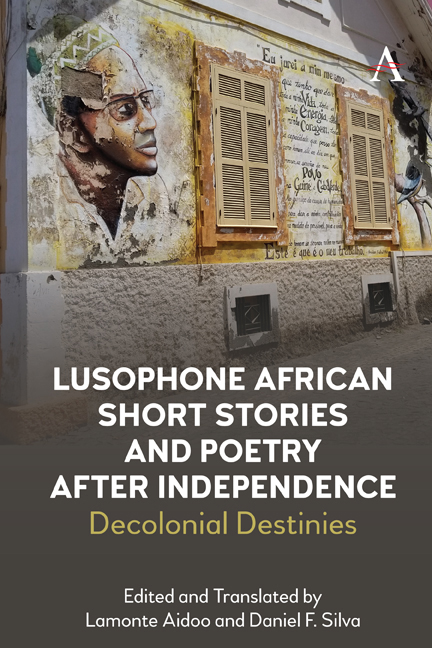Introduction
Published online by Cambridge University Press: 23 February 2022
Summary
ANTICOLONIAL STRUGGLE: THEORY AND PRACTICE IN LUSOPHONE AFRICA
In 1974, after a decade-long struggle for independence against Portuguese colonialism on three fronts (Angola, Mozambique, and Guinea-Bissau), Portugal became the last colonial power to relinquish their colonies on the African continent. Indeed, in colonial Angola, a consolidated armed struggle began in January 1961 through an uprising in northeastern Angola in opposition to colonial labor conditions on the cotton plantations operated by Cotonang, a Portuguese-Belgian company. A concerted armed struggle for independence in Angola was followed by the beginning of the Guinea-Bissau War of Independence in January of 1963, and the Mozambican War of Independence in September of 1964. In discussing the anticolonial struggle, it is important to note not only the conflicts that led directly to political independence, but also the longer history of resistance on various scales—local and national. As some of the literary contributors to this volume emphasize, though, anticolonial struggle is seldom a teleological matter. Rather, the events of resistance of the past bleed into the present and the history of colonial expansion is also marked and destabilized by the specter of struggle. In thinking of a history of anticolonial action, even cursorily, a crucial distinction to make is in examining the consolidated and broad geographic scope of anticolonial coordination, when looking at the armed struggle for independence. In the case of the Angolan struggle for independence, this involved different movements with differing ideological positions regarding social alternatives to colonial reality and forged political alliances with foreign states.
For instance, the Movimento Popular the Libertação de Angola (People's Movement for the Liberation of Angola, MPLA) coordinated the attack on the São Paulo prison in the Sambizanga zone of Luanda in February of 1961 to free political prisoners of the colonial police, while the União das Populações de Angola (Union of Peoples of Angola, UPA) organized an armed incursion on Portuguese plantations in northern Angola on March 15 of the same year. This sort of coordination and cooperation was also true on a larger scale of anticolonial work across movements located in different Portuguese colonies in Africa, as well as with movements and groups working continentally and transcontinentally.
- Type
- Chapter
- Information
- Lusophone African Short Stories and Poetry after IndependenceDecolonial Destinies, pp. 1 - 40Publisher: Anthem PressPrint publication year: 2021

